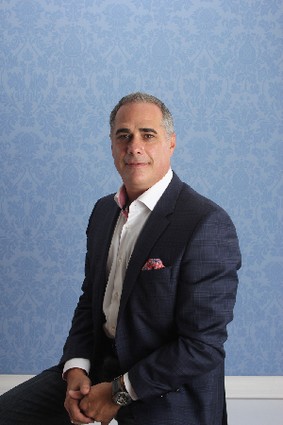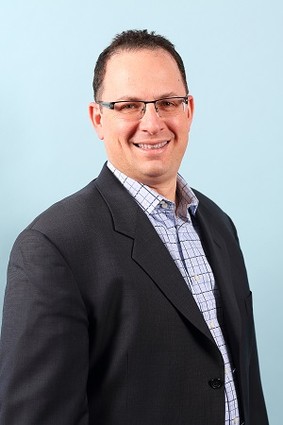Books NJ CEOs Read in 2015 That Influenced Actions in Their Companies, Part Two
This year, as part of our end-of-year coverage, we asked some CEOs of New Jersey tech companies to help NJTechWeekly.com by talking about books they read that influenced their actions as CEO, or gave them ideas that they pulled into their company. Several CEOs were happy to accommodate. This is the second of two articles based on their contributions.
SITO Mobile’s Jerry Hug tells how he drew inspiration from a biography of Elon Musk.
Mitch Rothschild, of Vitals, speaks about the enduring lesson he learned from “How Music Works”: that the most important job of any senior executive is to look at the horizon and see what foundational changes are coming.
Using lessons from “Good to Great: Why Some Companies Make the Leap…and Others Don’t,” Vidyo CEO Eran Westman says that his goal has been to help Vidyo become a “hedgehog,” specifically, by recognizing what it can be the absolute best at, and creating the principles that unify, organize and guide the decision making.

SITO Mobile (Jersey City) CEO Jerry Hug:
After reading Elon Musk: Tesla, SpaceX, and the Quest for a Fantastic Future by Ashlee Vance, I would say that understanding the importance of surrounding yourself with very smart people who believe in and trust one another is now at the core of my belief system as a CEO. Musk is an unabashed leader who has audacious visions and ambitions. His relentless pursuit of disrupting THREE major industries — automotive, energy and aerospace — makes him, in my opinion, the second most important entrepreneur of my lifetime, behind the iconic Mr. Jobs.

Vitals (Lyndhurst) Founder and Executive Chairman Mitch Rothschild:
What can an aging rock star teach you about business? It turns out, a lot.
In “How Music Works” a perspective-setting overview of music, David Byrne talks pointedly about the evolution of the music industry. During the 20th century, the industry moved from exclusively live concerts to selling recordings in a dizzying number of formats — records, 8-tracks, tapes and CDs. And that business, too, has effectively died.
Thanks to MP3s and streaming audio apps and stations, most people nowadays don’t “own” physical music collections, as they did in the past. In fact, Byrne points out that even record labels have become irrelevant to today’s most recognizable artists.
But instead of bemoaning the changes, Byrne embraces them, optimistically stating, “there have never been more opportunities for a musician to reach an audience.”
What he describes — in enlightening depth — is the principle of “creative destruction,” the idea that technological innovation fosters both progress and instabilities. The Internet has created more rising stars in music than would have been possible through label signings. Yet it has also vastly changed the fortunes of large, powerful companies like Sony, Tower, HMV and others.
Today, creative destruction is all around us. TV networks are under attack by companies like Hulu and Netflix. Hotels are competing with hosts on Airbnb. Even manufacturing companies are being threatened by the emergence of 3D printers.
But the music industry has changed more than almost any other. One hundred years ago, nobody even understood the idea of “owning” a recording. Fifty years ago, physical versions of those recording were, arguably, the most important items owned by the younger generation. And today, those libraries are obsolete.
The lasting lesson of “How Music Works” is that, no matter what business you’re in — music, retail or health care — technological change is inevitable. Survivors don’t get locked into old paradigms that ultimately become extinct. The most important job of any senior executive is to look at the horizon and see what foundational changes are coming. And adapt. Otherwise, you run the risk of being a one-hit wonder.

Vidyo (Hackensack) President and CEO Eran Westman:
The year 2015 was a notable one. I stepped into the role of CEO at Vidyo, and it has been an exciting time to learn and lead the company with new vigor. One of the most impactful books I’ve recently read was “Good to Great: Why Some Companies Make the Leap…And Others Don’t” by Jim Collins. The title piqued my interest because it recounted the journeys of a series of CEOs, promoted from within, who gracefully combined humility and professional know-how during a time of transition.
The strategies described in these pages reflect many of the strategies I have aimed to execute in my new role as CEO. A few worth mentioning include the creation and establishment of a culture of top talent and promoting high performers to new and challenging roles. As outlined by Collins, these practices are important, not only to the growth of the company, but for overall employee satisfaction.
Additionally, having the right people to bring leadership and energy into a company cannot be underestimated, talent must be rigorously sought and acquired to make a company great, Collins notes. That’s what we aim for at Vidyo — greatness!
Another point worth mentioning that resonated with me was what Collins refers to as the “hedgehog concept.” A hedgehog recognizes what it can be the absolute best at, and uses this to create the principles that unify, organize and guide the decision making. Combining passion, an assessment of how to differentiate yourself as the best and an understanding of what drives a company’s economic engine are essential to implementing the hedgehog concept. Redefining these principles has been a powerful and fruitful exercise for Vidyo. It’s been a successful year for us and 2016 will be even brighter!

